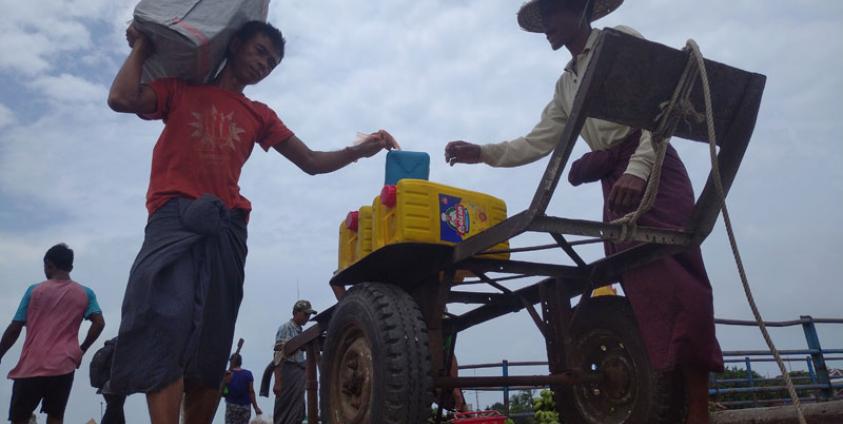Myanmar’s military regime has granted K10 billion from national economic development funds for development works in Arakan State, according to a message sent by junta chief Min Aung Hlaing for the 48th anniversary of Arakan State Day on Thursday.
The regime has formed a central committee for stability and development in Arakan State, and is implementing measures to improve the agriculture, livestock, manufacturing and fisheries sectors in Arakan State, said the message.
“Successive governments have attached great importance to the development of Arakan State. The Tatmadaw government is giving particular emphasis on the transportation sector for Arakan State not to lag behind other regions,” said junta chief Min Aung Hlaing.
Local residents in Arakan State, however, say they know nothing about the 10 billion kyats reportedly granted by the regime for Arakan State’s development.
A prominent businessman from Arakan State: “It is not yet clear where the government grant was spent in Arakan State. There is so far no data about which sector received how much. I’m not sure if it’s just me who’s not aware of the development fund or if the process lacks transparency.”
Min Aung Hlaing said the fund provided is not a loan and that the Arakan State Administration Council does not need to pay back the money to the central government.
Arakanese politicians have questioned Min Aung Hlaing’s sincerity, as the regime continues to impose restrictions on deliveries of goods. It still requires approval from the junta-run Arakan State security and border affairs ministry to bring in certain goods from Yangon and other parts of the country.
“Talking the talk will not bring economic development in Arakan,” said Arakan National Party (ANP) chairman U Thar Tun Hla. “People in Arakan State are losing their livelihoods, jobs, and access to roads. Unemployment is high. Because of high costs and low income, many youths have left Arakan to work overseas. Under such circumstances, his statement is very questionable.”
The regime has lifted travel restrictions on most roads and waterways following an informal ceasefire with the Arakan Army, but it continues to impose restrictions on deliveries of goods into Arakan State, which continues to take toll on traders and casual workers.
The regime also still imposes travel restrictions on local and international nongovernmental organisations helping internally displaced people (IDPs) in Arakan State.








